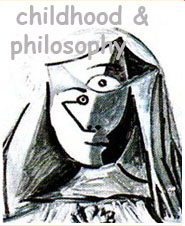power shift: play and agency in early childhood
Keywords:
play, agency, power, children's knowledge, children's culture, voice, schoolAbstract
Considerable ferment exists around the changing nature of children’s play and its place in contemporary childhood. Traditional perspectives on early childhood research have tended to trivialize and obscure the possibilities inherent in children’s ways of knowing. Researchers seldom ask children what play means to them. This article proffers a relatively new image of childhood, one that presents young children as collaborators in research, as competent interpreters of their lived experience. This study investigates children’s knowledge: their knowledge about what play is, how it is experienced, and its role in their lives, at school and at home. Interviews conducted with primary school students reveal how they perceive their lives in relation to the mainstream world of adults. Teachers and parents are seen as those who define, control, and sanction play. These children rely on the particularities and situatedness of everyday events to describe the meaning of play in their lives. Play emerges, to some degree, akin to a state of mind, invariably related to issues of autonomy, agency, and power.Downloads
Download data is not yet available.
Downloads
Published
2015-11-30
Issue
Section
articles



